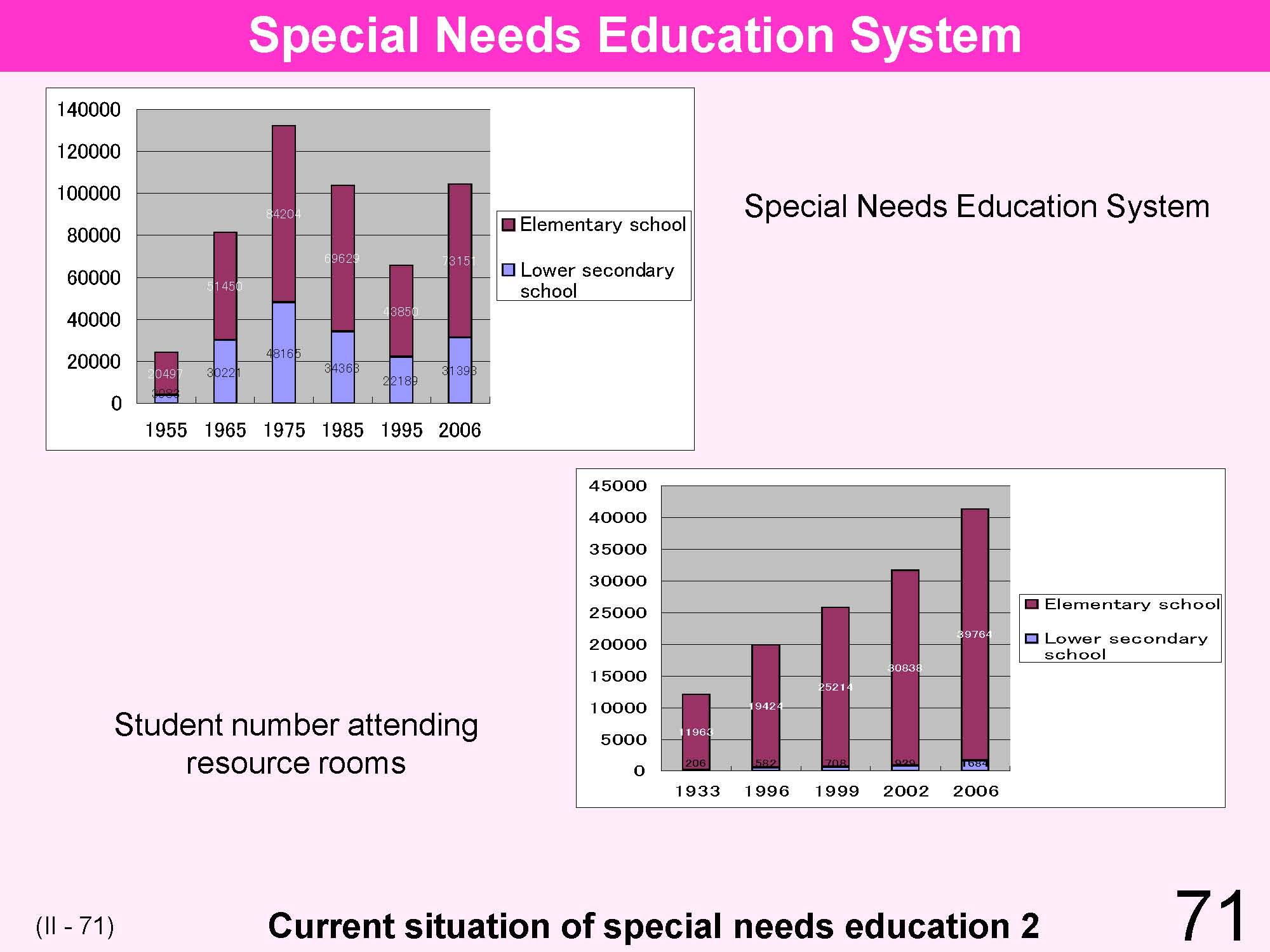| 71 | gII Japanese Educational Administration and Financeh | Previous | Next | JAPANESE |
|---|---|---|---|---|
 |
||||
| Classes for special needs education are small-group classes (up to eight children) which are provided for children with relatively mild impairments, and are established for each type of impairment in elementary and lower secondary schools. There are special classes for children who are mentally challenged, orthopedically challenged, have poor health, weak eyesight, hearing impairment, are vocally-challenged, or have emotional problems.
Resource room teaching is the learning style in which children with mild impairments enrolled in regular classes at elementary or lower secondary schools receive most of their lessons at regular class and take some special lessons based on the state of impairment at a special place (resource rooms). Targets for resource room learning are children who are vocally challenged, autistic, have emotional problems, learning disability (LD), attention-deficit hyperactivity disorder (ADHD), weak eyesight, hearing impairment, and others. |
||||
Please send your comments and concerns here
kamada@criced.tsukuba.ac.jp
Center for Research on International Cooperation in Educational Development(CRICED) University of Tsukuba
1-1-1, Tennodai, Tsukuba-shi, IBARAKI
305-857, JAPAN